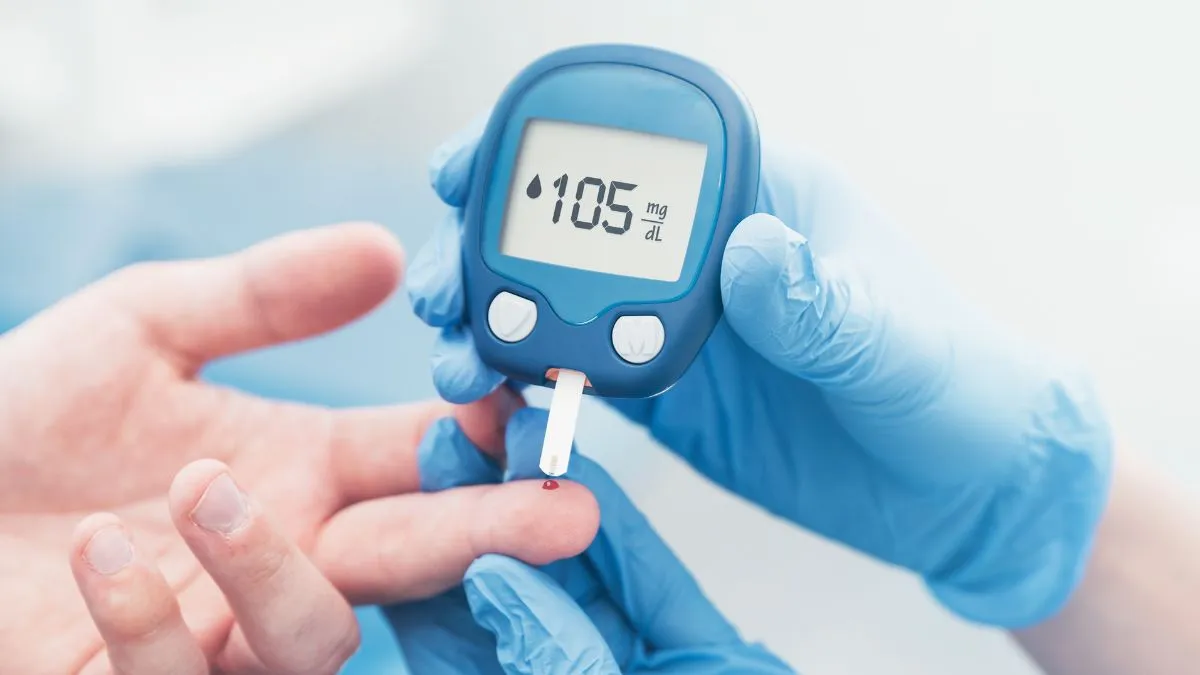- By Prerna Targhotra
- Wed, 29 Jan 2025 09:37 AM (IST)
- Source:JND
Type 1 vs Type 2 Diabetes: Divided into two main types: Type 1 and Type 2, diabetes is an illness that affects millions worldwide. Both involve issues with insulin, the hormone responsible for regulating blood sugar but the causes and treatments differ significantly. Type 1 diabetes is an autoimmune condition where the immune system mistakenly attacks the insulin-producing cells in the pancreas, resulting in little to no insulin production. Since insulin is important for controlling blood sugar by facilitating its entry into cells for energy, those with Type 1 must rely on external insulin through injections or pumps to manage their levels.
Type 2 diabetes, however, is more commonly associated with lifestyle factors such as poor diet, lack of exercise and obesity. In this form of diabetes, the body either becomes resistant to insulin or does not produce enough of it, leading to elevated blood sugar.
Difference Between Type 1 And Type 2 Diabetes
While Type 1 diabetes necessitates lifelong insulin therapy, Type 2 can often be controlled through lifestyle changes and oral medications. Understanding the differences between these two types is necessary for developing the appropriate treatment plan, as both conditions pose serious health risks but vary in how they grow, progress, and respond to treatment. Determining which type of diabetes is more severe depends on factors such as the individual’s health, how well the disease is managed and any complications that may arise.
Type 1 diabetes usually develops in childhood or early adulthood and because the pancreas produces little to no insulin, individuals must constantly monitor their blood sugar levels and administer insulin accordingly. Poorly managed Type 1 diabetes can lead to life-threatening consequences if blood glucose levels fluctuate too drastically or remain uncontrolled.
-1738123137481.jpg)
Type 1 vs Type 2 Diabetes (Image Credits: Canva)
In contrast, Type 2 diabetes tends to emerge later in life and is often the result of long-term poor lifestyle choices. While Type 2 diabetes progresses more slowly and can sometimes be managed with diet and exercise alone, it still poses significant risks. When left untreated or not handled properly, Type 2 can lead to serious complications such as cardiovascular disease, kidney problems, nerve damage and vision issues.
Which Is Dangerous: Type 1 Or Type 2 Diabetes
Ultimately, both Type 1 and Type 2 diabetes are serious conditions requiring diligent management to prevent debilitating complications. The severity of each depends on various factors including how the disease is managed and how advanced it becomes. With the right treatment approaches, both types can be controlled and the risks associated with them can be minimised. Early diagnosis, continuous education and a commitment to a healthy lifestyle are integral for managing both forms of diabetes and preventing long-term health issues.
ALSO READ: Doctor Lists 5 Pillars Of Healthy Lifestyle For Effective Diabetes Management
ALSO READ: How To Take Care Of Diabetes During Pregnancy? Expert-Recommended Tips
(Disclaimer: This article is for informational purposes only. It is not a substitute for professional advice, diagnosis or treatment.)
